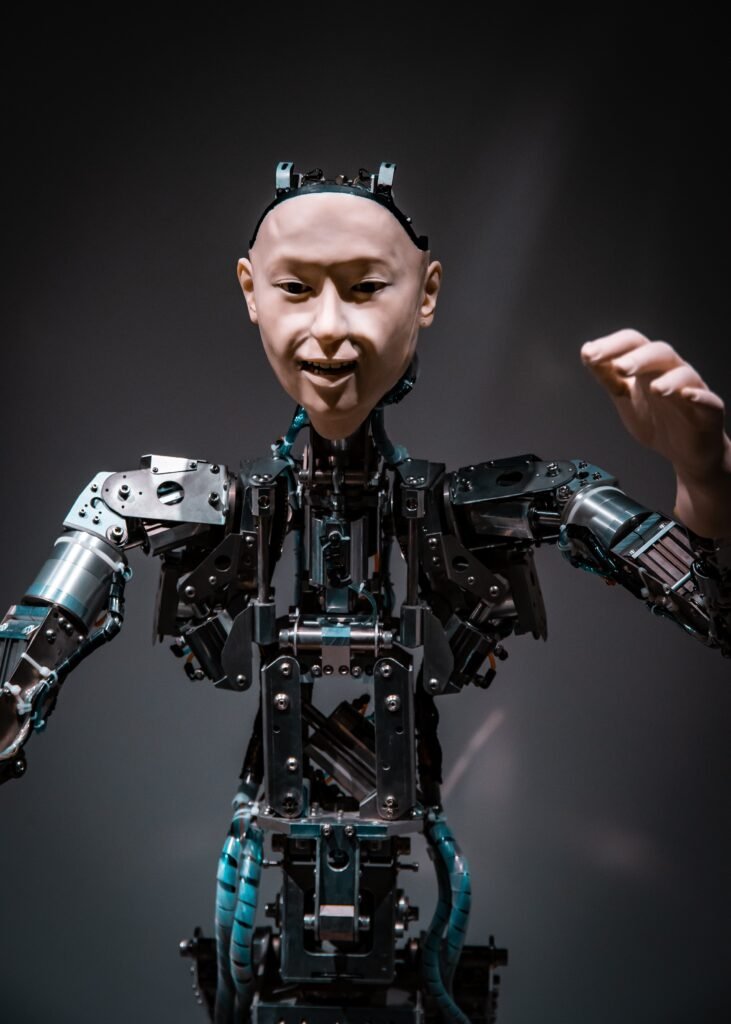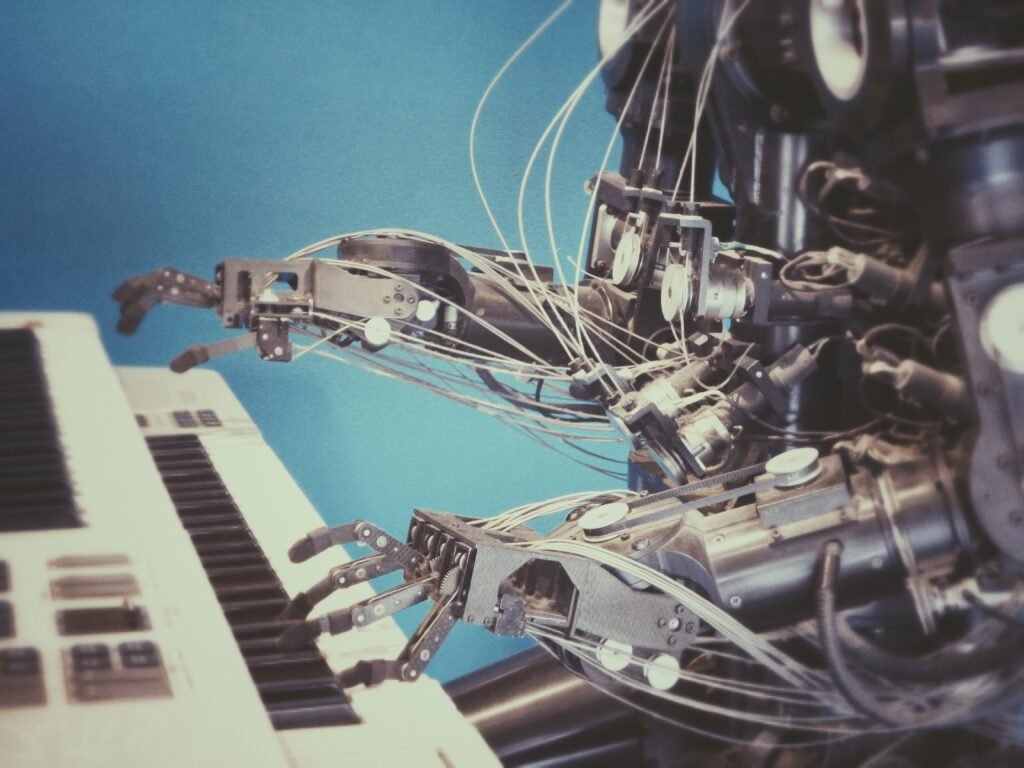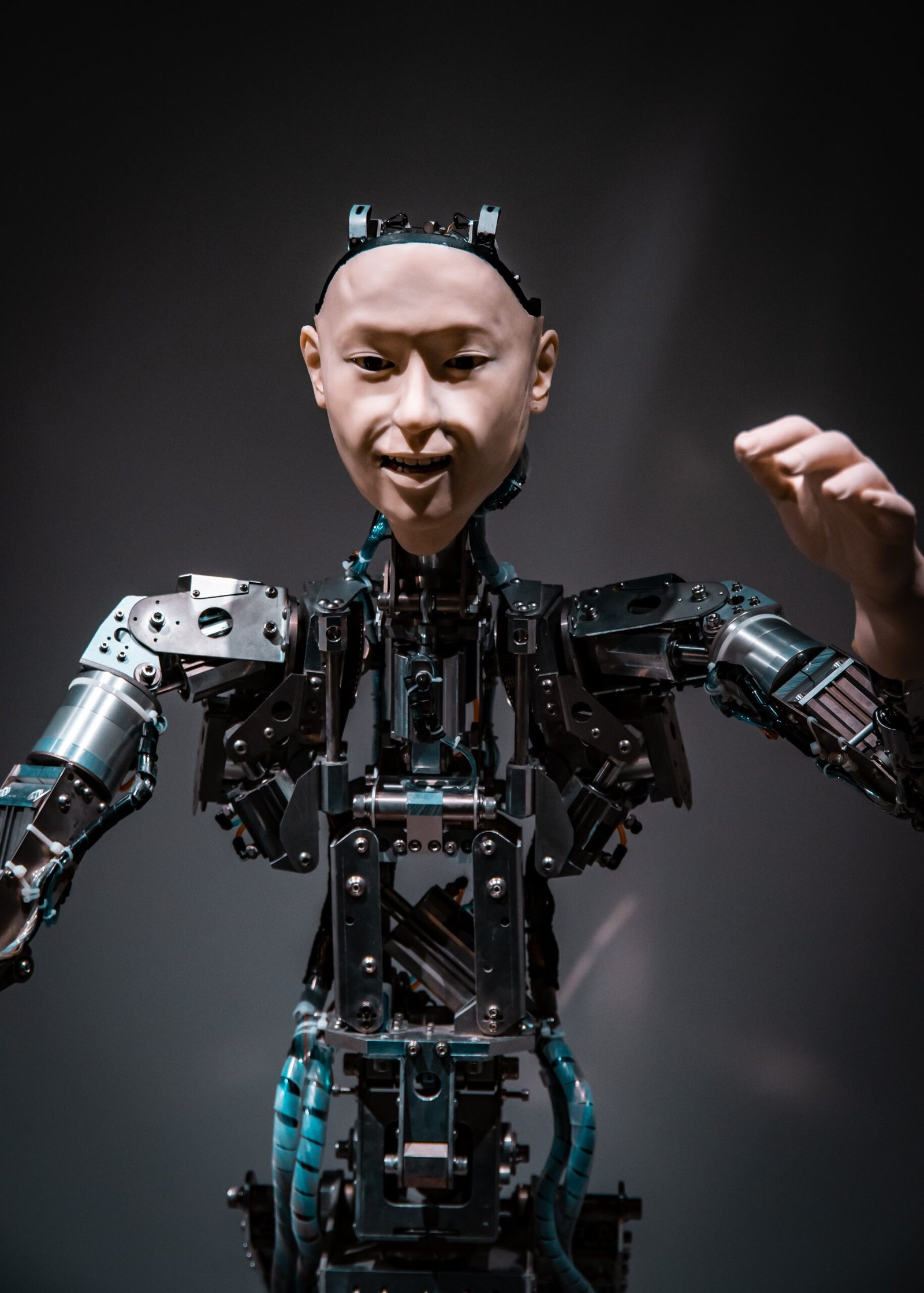Imagine a world where your alarm clock knows exactly when to wake you up, your refrigerator orders groceries before they run out, and your car drives itself to work. The rise of artificial intelligence (AI) has made all of these possibilities a reality, but what are the social implications of this technological advancement? In this article, we will explore the ways AI is reshaping our society, from transforming the job market to challenging our notions of privacy. Get ready to discover how AI is not only revolutionizing the way we live but also raising important ethical and societal questions.
Redefining Employment
Job displacement
AI is rapidly reshaping the job market, leading to concerns about job displacement. As automation replaces traditional roles, many fear that a significant number of jobs will become obsolete. However, it is important to understand that AI also creates new opportunities and can lead to the creation of different types of jobs. While certain industries may undergo significant changes, retraining and upskilling can help individuals adapt to the evolving job market.
Skill requirements
With the advancements in AI and automation, the skill requirements for jobs are shifting. Technical and digital skills are becoming increasingly essential, while routine tasks are being automated. This means that individuals will need to develop a broader skill set that includes creativity, problem-solving, and adaptability. Lifelong learning and continuous skill development will become crucial to remain employable in the AI-driven workforce.
Income inequality
The rise of AI has the potential to exacerbate income inequality. Highly skilled workers who can leverage AI technologies to enhance their productivity may see their incomes rise, while those in low-skilled or routine jobs may face displacement and wage stagnation. Addressing this issue requires proactive policies that prioritize equitable access to education, training, and economic opportunities. It is important to ensure that the benefits of AI are distributed fairly across society.
Ethics and Privacy Concerns
Data collection and misuse
AI relies heavily on data collection, raising concerns about privacy and potential misuse of personal information. As AI systems gather vast amounts of data, there is a need for strict regulations to protect individuals’ privacy rights. It is crucial to establish transparent data governance practices, informed consent mechanisms, and robust security measures to prevent unauthorized access or abuse of personal data.
Algorithmic bias
Algorithmic bias refers to the tendency of AI systems to produce biased outcomes based on the data they are trained on. These biases can have far-reaching social implications, reinforcing existing inequalities and discriminatory practices. Addressing algorithmic bias requires diverse and inclusive datasets, regular audits of AI systems for bias, and ongoing monitoring to ensure fairness and accountability in decision-making processes.
Surveillance
AI-enabled surveillance technologies raise concerns about privacy infringement and the erosion of civil liberties. The widespread use of facial recognition and predictive analytics systems can result in mass surveillance and the potential for misuse by authoritarian regimes. Striking a balance between public safety and individual privacy rights is crucial, necessitating robust legal frameworks and oversight mechanisms to prevent abuse and protect citizens’ fundamental rights.

This image is property of images.unsplash.com.
Social Interaction and Relationships
Human-AI interaction
As AI systems become more sophisticated, they are increasingly interacting with humans in various contexts. This raises questions about how these interactions will shape social dynamics and relationships. While AI can enhance efficiency and convenience in certain tasks, it is essential to maintain a balance between human and AI interaction to preserve interpersonal connections and the unique qualities that make us human.
Emotional reliance on AI
AI-powered virtual assistants and chatbots are designed to simulate human-like interactions, leading to emotional connections and possible reliance on AI for emotional support. While AI can provide a listening ear or offer advice, it is crucial to remember that it lacks true empathy and understanding. Maintaining meaningful human relationships and seeking genuine emotional support from trusted individuals are essential for our overall well-being.
Social isolation
The increasing integration of AI and technology in our lives has the potential to contribute to social isolation. With the convenience of AI-driven services, individuals may opt for digital interactions over face-to-face communication, leading to a decline in social connections. It is important to be mindful of balancing our use of technology with real-world interactions to prevent the negative impacts of social isolation on mental health and overall social cohesion.
Education and Workforce Development
Skillset adaptation
The rapid advancement of AI necessitates a shift in the skills and knowledge required for the future workforce. To thrive in an AI-driven world, individuals must adapt their skillset to include critical thinking, problem-solving, and creativity. Additionally, the education system needs to prioritize teaching foundational skills that are less susceptible to automation and encourage lifelong learning to keep up with evolving technologies.
AI-driven learning
AI has the potential to transform education by personalizing learning experiences, providing personalized feedback, and identifying areas where students may need additional support. AI-driven learning platforms can cater to individual learning styles and pace, creating a more inclusive and efficient education system. However, it is crucial to address concerns related to data privacy and ensure that AI is used as a tool to augment human teaching rather than replace it entirely.
Job market transformation
AI’s impact on the job market will lead to significant transformations in the types of jobs available. Certain industries may experience a decline in employment opportunities, while others will witness the emergence of new roles that require a combination of human and AI capabilities. Preparing for this transformation requires proactive workforce development strategies, such as upskilling programs, job placement services, and collaboration between industry and educational institutions to align skill development with emerging job market needs.

This image is property of images.unsplash.com.
Economic Impact and Redistribution
Wealth concentration
The increasing automation brought about by AI has the potential to concentrate wealth in the hands of a few. As companies leverage AI technologies to boost productivity, it is crucial to ensure that the benefits are widely shared. Exploring models of wealth redistribution, such as universal basic income or alternative economic systems, may be necessary to address the potential inequalities arising from AI-driven automation.
Income redistribution
Addressing income inequality requires a focus on income redistribution. AI’s impact on employment may result in job displacement for certain individuals, and ensuring they have access to income support, retraining programs, and economic opportunities becomes essential. Policies that promote equitable access to education, training, and employment can help mitigate the potential negative economic impact of AI.
Economic automation
The widespread adoption of AI and automation technologies has the potential to automate various aspects of the economy, leading to job displacement in certain sectors. While this may result in short-term disruption, it also presents an opportunity to redefine work and focus on more meaningful and creative endeavors. Governments and organizations should collaborate to ensure a smooth transition by providing support for affected workers and encouraging the creation of new industries and job opportunities.
Legal and Regulatory Challenges
Accountability and liability
As AI systems become increasingly autonomous and make decisions that impact individuals’ lives, issues of accountability and liability arise. Determining who is responsible for the actions or decisions made by AI systems can be challenging. Establishing clear legal frameworks that define responsibility and liability in the context of AI is crucial to ensure accountability and protect individuals from potential harm.
Ethical AI standards
The development and deployment of AI need to be guided by ethical standards. Ethical considerations should be embedded into the design and decision-making processes of AI systems to ensure fairness, transparency, and responsible use. Collaborative efforts between policymakers, industry leaders, and experts in ethics and AI can help establish a framework of ethical guidelines that promote the responsible development and use of AI technologies.
Regulation lag
The pace of AI development often outpaces the development of appropriate regulations. This regulatory lag can result in loopholes, misuse, or lack of accountability in the deployment of AI technologies. Policymakers need to strike a balance between promoting innovation and protecting the public’s interests. Regular assessments of existing regulations and proactive efforts to update and adapt them to the evolving AI landscape are crucial to ensure effective oversight and governance.

This image is property of images.unsplash.com.
Impact on Healthcare
Medical diagnosis and treatment
AI has the potential to revolutionize healthcare by enhancing accuracy and efficiency in medical diagnosis and treatment. Machine learning algorithms can analyze vast amounts of medical data to identify patterns and provide more accurate diagnoses. Additionally, AI-powered robots and devices can assist in surgeries, resulting in greater precision and improved patient outcomes. However, it is important to address concerns related to data privacy, algorithmic bias, and the ethical implications of automated decision-making in healthcare.
Healthcare accessibility
AI can contribute to improving healthcare accessibility by bridging gaps in healthcare delivery. Telemedicine, remote monitoring, and AI-powered chatbots can provide medical assistance and support to individuals in remote areas or those with limited access to healthcare providers. By leveraging AI technologies, healthcare services can be extended to underserved populations, ensuring equitable access to quality care.
Ethical dilemmas
The use of AI in healthcare raises various ethical dilemmas. For example, determining the appropriate balance between human judgment and AI recommendations, ensuring patient consent and data privacy, and addressing the potential biases embedded in AI algorithms are critical considerations. Policymakers, healthcare professionals, and ethicists must work together to establish guidelines and frameworks that prioritize patient autonomy, fairness, and ethical decision-making in the realm of AI-driven healthcare.
Disinformation and Fake News
AI-generated fake content
The rise of AI also poses challenges in the realm of disinformation and fake news. AI technologies can be exploited to generate realistic and misleading content, making it difficult to discern what is real and what is fake. This has significant implications for public discourse, trust in media, and the spread of misinformation. Developing effective AI-driven fact-checking tools and increasing media literacy are crucial to combatting the spread of fake news.
Manipulation of information
AI can be used to manipulate information and tailor content to individuals’ preferences, potentially leading to filter bubbles and echo chambers. This selective exposure to information can reinforce existing biases and limit individuals’ exposure to diverse perspectives. Promoting media literacy and critical thinking skills, while also implementing transparency measures in AI algorithms, are essential to counteract information manipulation and ensure a well-informed society.
Trust in media
The proliferation of AI-generated content and the spread of fake news can erode trust in traditional media sources. Building trust requires promoting transparency in AI-driven systems and ensuring accountable and ethical practices in media organizations. Enhanced media literacy programs, fact-checking initiatives, and collaborative efforts between technology companies and media outlets are necessary to restore and maintain public trust in journalism and the media.
Human Rights and AI
Discrimination and prejudice
AI systems can inadvertently perpetuate existing discrimination and prejudice if not appropriately designed and trained. Biased data or flawed algorithms can lead to discriminatory outcomes, such as biased hiring practices or unequal access to services. Recognizing and addressing these biases in AI systems is crucial to ensuring equal treatment and promoting social justice.
Invasion of privacy
The widespread adoption of AI technologies raises concerns about the invasion of privacy. From facial recognition systems to predictive analytics, the collection and use of personal data can have significant privacy implications. Safeguarding individuals’ privacy rights through robust data protection regulations, user consent mechanisms, and transparency in data handling practices is essential to prevent undue invasions of privacy.
Weaponization of AI
AI technologies can be weaponized and used for malicious purposes. Autonomous weapons systems, cyberattacks, and surveillance tools can pose risks to human rights and global security. International cooperation and the development of frameworks that regulate the use of AI in military applications are necessary to prevent the weaponization of AI and ensure adherence to ethical principles, human rights, and international humanitarian law.
Cultural and Behavioral Changes
Influence on cultural values
The integration of AI and technology into our lives has the potential to influence and shape cultural values. The convenience and efficiency offered by AI-driven services may lead to a culture of instant gratification and reliance on technology. It is essential to maintain a critical perspective and actively consider the impact of AI on cultural values, ensuring that human values and social well-being are not compromised in the pursuit of technological advancements.
Shifts in societal attitudes
As AI permeates various aspects of society, there may be shifts in societal attitudes and expectations. Acceptance of AI technologies, willingness to interact with AI systems, and expectations regarding the role of AI in everyday life may undergo significant changes. Promoting public dialogue, transparency, and inclusivity in the development and deployment of AI can help shape these societal attitudes in a way that aligns with human-centered values and social needs.
Digital addiction
The increasing reliance on AI and technology, coupled with the addictive nature of digital devices and platforms, raises concerns about digital addiction. Excessive use of technology can have negative impacts on mental health, social relationships, and overall well-being. Promoting digital literacy, healthy technology usage, and fostering a balance between off-screen and on-screen activities are essential to prevent the potential risks of digital addiction and ensure a healthy relationship with technology.
In conclusion, AI has the potential to reshape various aspects of society, presenting both opportunities and challenges. Addressing the social implications of AI requires a proactive approach that prioritizes ethics, privacy protection, inclusivity, and equitable access to benefits. By navigating these challenges thoughtfully and collaboratively, it is possible to harness the power of AI to create a more inclusive, fair, and human-centric future.
